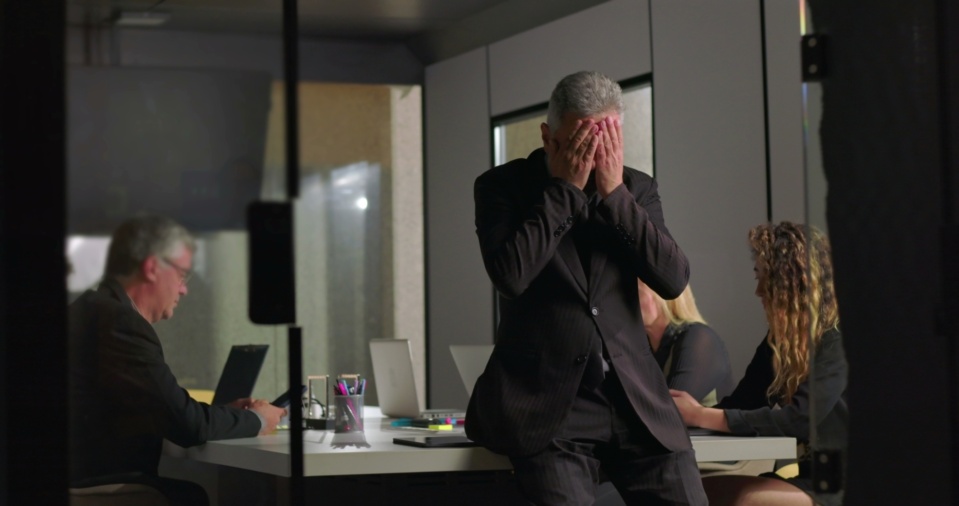
What not-for-profit leaders need to know in 2026
Posted on 12 Feb 2026
Our special NFP trends report distils the views of more than two dozen experts.
Posted on 26 Jun 2025
By Adele Stowe-Lindner

I once worked for a small not-for-profit that decided to host a small public event at its offices.
I once worked for a small not-for-profit that decided to host a small public event at its offices. I arrived early, and I noticed a newly acquired lectern and some borrowed AV equipment on the makeshift stage. The staff were doing everything they could to create the impression of a highly professional outfit, but the dingy office space told a different story.
It’s widely understood in the NFP arena that Team Charity should be working to save every dollar, while Team Corporate swans around tossing fistfuls of dollars at swish office furnishings and expensive catering. This poverty mindset among NFPs might be commendable in the sense that it shows an appreciation of the value of every dollar donated to its cause. However, it also creates its own problems.
People want to donate to organisations that will make the most of their money. They want organisations to be sustainable, and to project an image of sustainability. Nobody likes the smell of an oily rag. At the same time, staff generally want to work somewhere that makes them feel good – that means, at a minimum, an office without mice, with some nice tea and coffee, clean toilets, and pretty pictures on the walls. None of those items should be considered wasteful.
I once worked for a CEO who had the surprising habit, for a not-for-profit CEO, of dressing smartly – and I mean super smart. This meant that when we met with significant donors at their CBD tower offices, or forged contracts with corporate companies who spent large sums to organise team-building programs that benefited our organisation, she looked right at home. And so did the rest of the staff, who followed suit.

"Next time you’re working on a budget, consider your organisation’s professional reputation and budget for it."

In the 20 years I’ve known that organisation, I’ve seen an unusually high proportion of staff who have left it walk into incredible roles at large, high-impact organisations. Their new employers know when they get these staff that they are getting values-driven, world-changing workers who are highly professional and have immense respect for stakeholders.
Investing in a few simple office niceties can make a big difference to staff culture. So can investing in professional development for staff in a way that signals that you encourage them to take up opportunities, rather than wait until they ask you for them. It signals that their growth matters, not just their output. And when people feel valued at work, they bring more energy, creativity and commitment to what they do.
Next time you’re working on a budget, consider your organisation’s professional reputation and budget for it. That might mean spending on financial software that’s not Excel, or allocating funds for a web designer to review your website, or paying for a lectern and a microphone. It definitely means building a professional development budget line and ensuring you spend it.
Professionalism does not detract from purpose – it elevates it. Budgeting for staff development, a nice set-up and a little style does not mean you are compromising your mission. It means you are equipping your people to carry it confidently into rooms where it matters.
This end of financial year, don’t ask what you can cut. Ask what you need to build and budget for.
Finance tools and resources: For treasurers | For board directors | For everyone

Posted on 12 Feb 2026
Our special NFP trends report distils the views of more than two dozen experts.

Posted on 10 Feb 2026
As my family dropped our teenage son off at the airport in the first week of January to embark on a…

Posted on 11 Dec 2025
Community Directors trainer Jon Staley knows from first-hand experience the cost of ignoring…

Posted on 10 Dec 2025
As a qualified yoga instructor who learned the practice in her hometown of Mumbai, Ruhee Meghani…

Posted on 10 Dec 2025
Anyone working in an organisation knows it: meetings follow one after another at a frantic pace. On…

Posted on 10 Dec 2025
Stressed, overwhelmed, exhausted… if you’re on a not-for-profit board and these words sound…

Posted on 10 Dec 2025
The Institute of Community Directors Australia trains over 22,000 people each year, which gives us…

Posted on 03 Dec 2025
Many not-for-profit (NFP) board members in Australia are burnt out, overwhelmed and considering…

Posted on 26 Nov 2025
A roll call of Victoria’s brightest future leaders has graduated from a testing and inspiring…

Posted on 12 Nov 2025
At the Institute of Community Directors Australia, we believe that stronger communities make a…

Posted on 12 Nov 2025
Like many Community Directors members, Hazel Westbury is a community leader who isn’t easily…

Posted on 11 Nov 2025
I’ve seen what happens when fear of conflict wins out over taking a principled stand.